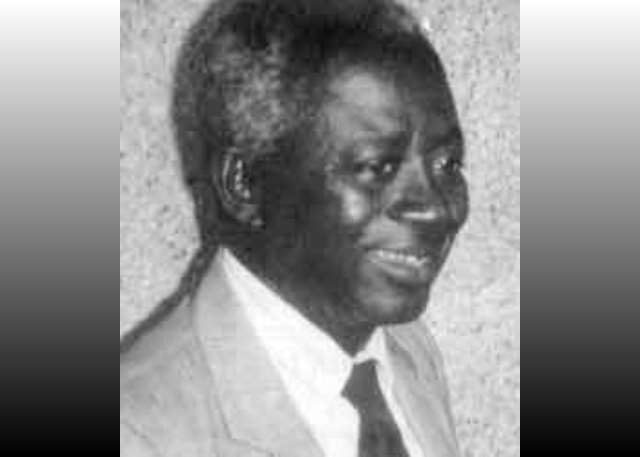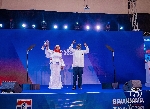Razak Kojo Opoku: NPP never rejected Prof. Adu Boahen on tribal or religious grounds
 Late Prof Adu Boahen
Late Prof Adu Boahen
Razak Kojo Opoku, Founding President of the UP Tradition Institute and a leading member of the New Patriotic Party(NPP), has dismissed claims that tribal or religious considerations played any role in the rejection of Prof Albert Kwadwo Adu Boahen as the New Patriotic Party’s (NPP) flagbearer ahead of the 1996 presidential election.
Prof. Adu Boahen, an Ashanti from Juaben but born in Oseim in the Eastern Region, made history as the first presidential candidate of the NPP under the 4th Republican Constitution.
Widely credited with breaking Ghana’s “culture of silence,” he co-founded the Movement for Freedom and Justice and served as its first chairman.
He contested the 1992 presidential election on the NPP’s ticket, polling more than 1.2 million votes (30.29%).
He lost to the NDC’s Jerry John Rawlings, who secured 58.4% of the vote.
Despite the defeat, Adu Boahen’s performance was significant, considering the hostile political climate as Ghana transitioned from military to democratic rule.
Before his 1992 candidacy, Adu Boahen emerged victorious in the NPP’s internal primaries, securing 56.6% of delegate votes, ahead of Dr. Dsane Selby (17.3%) and John Agyekum Kufuor (16.5%).
However, in the run-up to the 1996 elections, Adu Boahen was rejected by NPP delegates, who instead elected John Agyekum Kufuor as flagbearer.
The results of the 1996 primary were: Kufuor – 1,034 votes (51.99%), Adu Boahen – 710 votes (35.7%), and J.H. Mensah – 110 votes (5.53%).
Addressing this historical development, Dr Opoku stressed that Prof Adu Boahen’s rejection had nothing to do with his tribe, religion, or regional background.
“Did NPP delegates reject Prof. Adu Boahen in 1996 because of his tribe or religion or being from the Ashanti Region with a base in the Eastern Region? Certainly not,” he stated.
According to Dr Opoku, NPP’s history demonstrates that a second or third attempt at the presidential slot has never been an entitlement or consolation prize.
Instead, delegates reward merit and elect candidates they believe can best lead the party to victory.
He cautioned against what he described as “emotional blackmail tactics” in contemporary politics, where some candidates may seek sympathy by framing themselves as victims of tribal, religious, or demographic bias.
“Politics and democracy are all about competition, and cooperation after competition,” he added.
Source: classfmonline.com/Cecil Mensah
Trending News

NHIS intensifies monitoring, introduces new measures to improve healthcare access
12:58
Small-Scale Miners Association clarifies position on IGP's taskforce
12:03
AMA launches energy efficiency campaign to cut costs and curb carbon footprint
15:29
PAC orders Finance Minister to probe GRA over GH¢2.9m unrecovered funds
15:34
O/R: Rampant refuse dumping, open defecation to be tackled to stem typhoid surge
13:02
A man must be formidable to withstand adversity - Bawumia to critics
11:51
We can leverage South Africa's relationship to harness the potential of the BRICS nations, says Mr. Benjamin Quashie
11:23
NDC flagbearer race: When I get to the bridge, I will cross it -Eric Opoku
13:55
Oti Region records surge in typhoid cases; GHS calls for urgent action
10:01
If there were anyone to create division in NPP, it won't be me - Bawumia assures supporters
11:47



